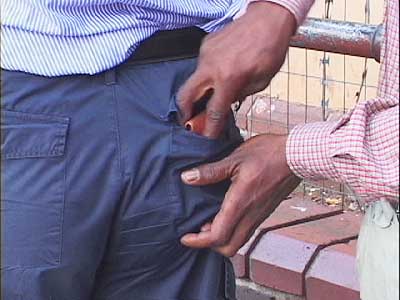Western Force are an organisation released from purgatory after having spent most of the last year knowing there was a thief in its ranks.
Since early last season, the Perth-based Super Rugby club has been beset by a string of low-grade robberies, thefts at first on such a small scale – $10 here, $20 there, $50 elsewhere – that the victims of them, players mostly, initially thought nothing of them, believing they had simply miscounted how much money they had been carrying in their wallets.

That’s about as devastating a discovery as a football club can make. All businesses and organisations preach the virtues of teamwork and trust but a rugby club must live them or die.
Coach Richard Graham knew he had to act quickly before suspicion and unrest tore his side apart.
It was a relatively simple piece of detective work he was faced with.
Eleven thefts had been reported to club officials over the past year, some of them occurring on the road, most at the Force’s Mount Claremont headquarters, so Graham set about the task of establishing who was in the vicinity when each of the robberies occurred.
One by one, all players and officials were eliminated as suspects, all save for Willie Ripia, the New Zealander recruited by the club as a foreign development player in 2010.
Eventually the evidence against Ripia became so compelling that Graham had no alternative but to confront the player head-on, a meeting he was dreading.
“I told him I thought he was the thief,” Graham said.
“One of the things about accusing someone of something as serious as that is that you have to be absolutely bulletproof in terms of the evidence you’ve got.”
An innocent rugby player accused of such a thing by his coach might have been expected to explode and Graham, frankly, was on high alert in case he needed to duck.
Instead, Ripia took the accusation calmly and, far from becoming agitated, sat back in his chair and coolly denied the charge.
The rest of the playing squad pretended nothing was amiss, all of them coming together for a pre-Christmas barbecue, Ripia included. But Graham was acutely aware of the tension building beneath the surface.
“Obviously when something like that is going on, there’s an undercurrent,” he said.
In the end, Ripia virtually gave himself up. The surveillance camera mounted over the players’ lockers could hardly have been more conspicuous and yet Ripia still went brazenly from locker to locker searching for one that was unlocked. Case closed.
On Tuesday, club officials called him in, sat him down and played him the surveillance tape. They didn’t need to hear him confess because the footage said it all but Ripia did anyway.
Then the discussion turned to whether he should be suspended, or, have his contract torn up. Again Ripia made it easy for the Force.
He resigned on the spot, effective immediately.
It’s believed Ripia caught the midnight plane out of town, just before the story broke. Seemingly he is bound forNew Zealandand his family home in Rotorua.
Anxious Force officials still feel a duty of care towards him and want to make certain he is OK but, not unexpectedly, he has gone into hiding.
Buford Balony says: Too bad one of the forwards didn’t get hold of him before he ran away to NZ.

